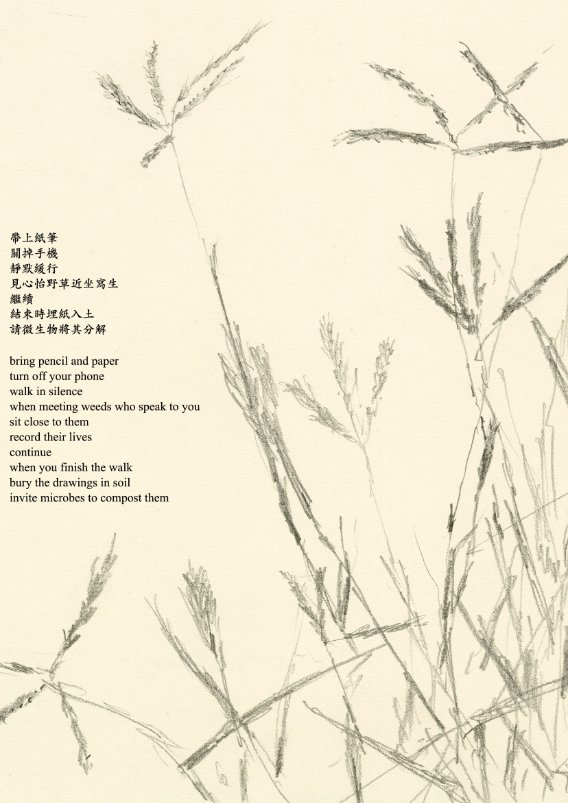Zheng Bo
Zheng Bo (1974) lives and works in Hong Kong. Committed to inclusive multi-species relations, he creates performances and videos, community workshops, and drawings in which standard notions of coexistence between man and plant are turned on their heads, allowing imaginative thinking to lead to what the artist conceives as “a post-human vibrancy”. Through his instruction, the artist invites us to change our relationship with plants and to go beyond the conventions associated with drawing: here, it's not a question of “knowing” how to draw or of knowing the name of the plant, but of sharing a moment, of also sharing the sheet of paper that ends up back in
Fun Fact
Chemical communication and mycorrhizal networks:Plants use chemical signals to communicate with each other. For example, when a plant is attacked by herbivores, it may emit volatile compounds to warn neighboring plants, which in turn may produce defensive substances. Even more fascinating is the role of mycorrhizal networks. These networks are formed by mycorrhizal fungi that associate with plant roots. This underground network, often referred to as the “Wood Wide Web”, enables plants to share resources such as water, nutrients and even chemical information. Through this network, one healthy plant can support another in difficulty by transferring essential nutrients.
Continuation of the instruction
No biodegradable paper to hand? Try your hand at 'Land Art', a form of artistic expression based on natural elements found on the surrounding ground. Write, draw, glue, if possible, without ripping anything out.
Riddle
How long will it take for your piece of paper to decompose?
A) A few minutes, barely enough time to wash your hands
B) A few days, decomposers work on a weekly basis
C) A few weeks, the decomposers need a little time all the same
D) A few years, enough time to forget several times where it was buried
Instruction
